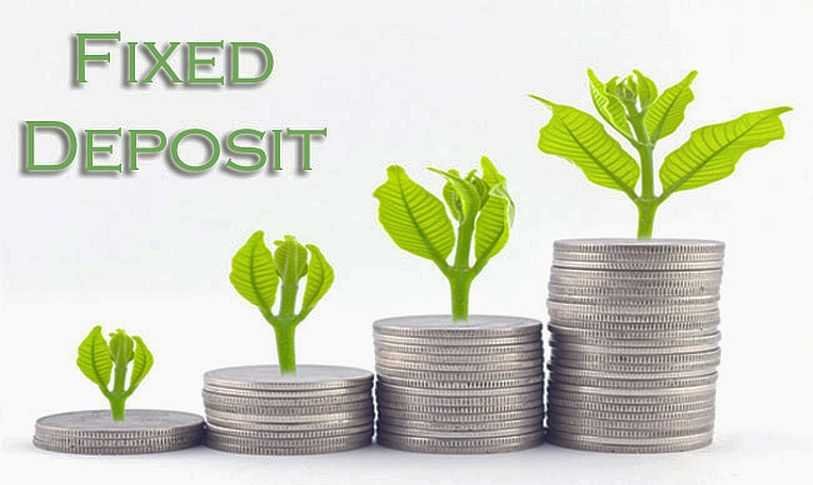Fixed Deposit: What is Fixed Deposit, What is Fixed Deposit Interest Rate, Fixed Deposit Interest Rates
For some business owners, the idea of opening up an online business account might seem daunting, but in reality, it’s easier than ever before to get started. Because the Internet is such a convenient and time-saving resource, many banks have started offering online FD accounts to their customers who aren’t interested in physically coming into the bank every day to do their business transactions. What exactly is a fixed deposit? What are fixed deposit interest rates? Learn more here.
What is Fixed Deposit
What is a Fixed Deposit? A fixed deposit (FD) in banking terminology refers to savings of a period ranging from 7 days to 5 years. Most banks offer two types of fixed deposits – Interest Bearing Fixed Deposits (IBFD) and Non-Interest Bearing Fixed Deposits (NIBFD). NIBFD earns no interest and does not carry any risk to the principal. Thus, NIBFD deposits are considered a low-risk investment. These deposits carry high liquidity and thus enable easy withdrawal of funds at any time without any penalty. However, IBBF deposits give an interest rate on the amount deposited for that particular tenure.
These FDs earn higher rates than regular saving accounts but lower than recurring deposit accounts. The interest earned here accrues annually or quarterly depending upon the bank’s discretion. But if your FD account remains idle with no operation during one year, it will attract a fine which may be up to 3% per annum and you might also lose some portion of your annual interests depending upon your bank policy. This will be deducted by banks out of your fixed deposit money.
Read | Mutual Fund Investment Guide 2022: How To Invest In Mutual Fund Plans
What is Fixed Deposit Interest Rate
Fixed deposits interest Rates bearing bank deposit schemes that help savers earn additional interest on their money. They’re available from banks and building societies and usually have terms of six months to five years. Typically, higher rates are paid for longer periods. When you put your money into a fixed deposit account you agree not to withdraw it for a specified time period – usually between one month and five years. In return for agreeing not to withdraw your money, you’ll receive an agreed interest rate depending on how long you leave it in there.
Fixed Deposit Interest Rates
The following are the revised FDIR of the Latest SBI Fixed Deposit Rates:
| 7 days to 45 days | 2.90% | 3.40% |
| 46 days to 179 days | 3.90% | 4.40% |
| 180 days to 210 days | 4.40% | 4.90% |
| 211 days to less than 1 year | 4.40% | 4.90% |
| 1 year to less than 2 years | 5.10% | 5.60% |
| 2 years to less than 3 years | 5.10% | 5.60% |
| 3 years to less than 5 years | 5.30% | 5.80% |
| 5 years and up to 10 years | 5.40% | 6.20% |
Various Types Of SBI Fixed Deposits
State Bank of India (SBI) offers its customers to make various types of fixed deposits. Customers can get various benefits under different schemes. The list of the schemes is mentioned below.
- SBI Term Deposit
- SBI Tax Saving Scheme
- SBI Fixed Deposit Investment Plan
- SBI Annuity Deposit Scheme
- SBI Wecare
Read| 10 Low Investment Business Ideas in India 2022
Future of Fixed Deposits in India
Fixed Deposits in India are widely used by people to earn higher returns. Although FDs have lower interest rates compared to other investment avenues such as stocks and mutual funds; they are widely preferred due to their safety features. During present days when the real estate sector is facing recession in all major cities of India, savings bank deposits have emerged as one of the best possible options for investors looking at safe investment avenues. In a scenario where most traditional investment avenues have failed to generate good returns over the last several years; Fixed Deposits can be an ideal choice for conservative investors who prefer not taking risks associated with equity investments or are yet undecided about where and how much amount should be invested in stocks.
Fixed Deposit in 2022
Fixed deposit and its benefits have been on the talk for the past few months. Banks have been increasing fixed deposit rates. Many banks are offering interest rates of 8-10% which would further go up as the inflation rate will go higher in the coming days. However many people still do not know what a fixed deposit actually is and what can they do with it? There are mainly two types of Fixed Deposits Recurring deposits (RD) and Term Deposits (TD). Recurring deposits are typically offered for 7 days to 5 years as compared to term deposits which are for a period of 1 year or more than that.
Wrapping UP
Fixed Deposit is a very generous offer for middle-class people. It gives people hope and accruals. But stuff like inflation must be kept in mind before investing. A country’s economy must be thought and researched beforehand for investing.
Do you want to learn more about earning opportunities? Then these articles are for you. Want more like these then stay tuned to our website Techforu.
